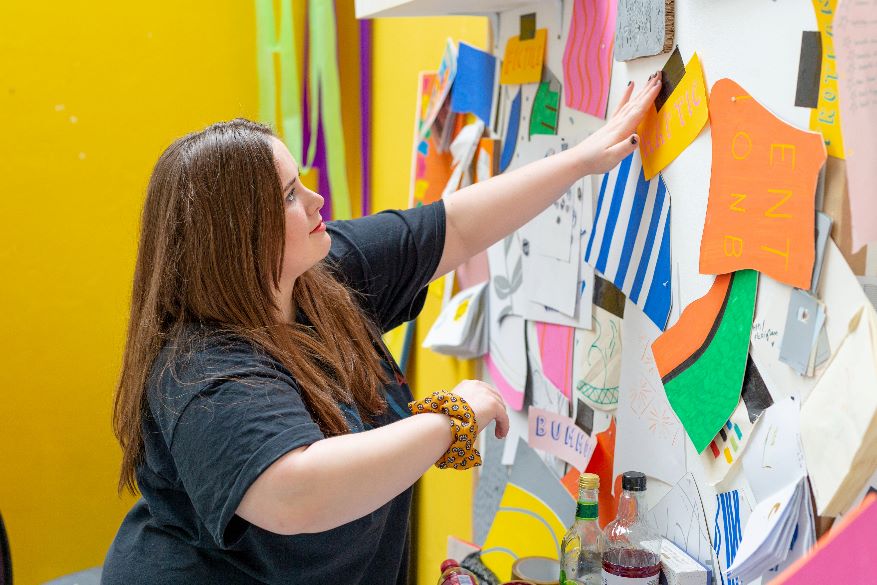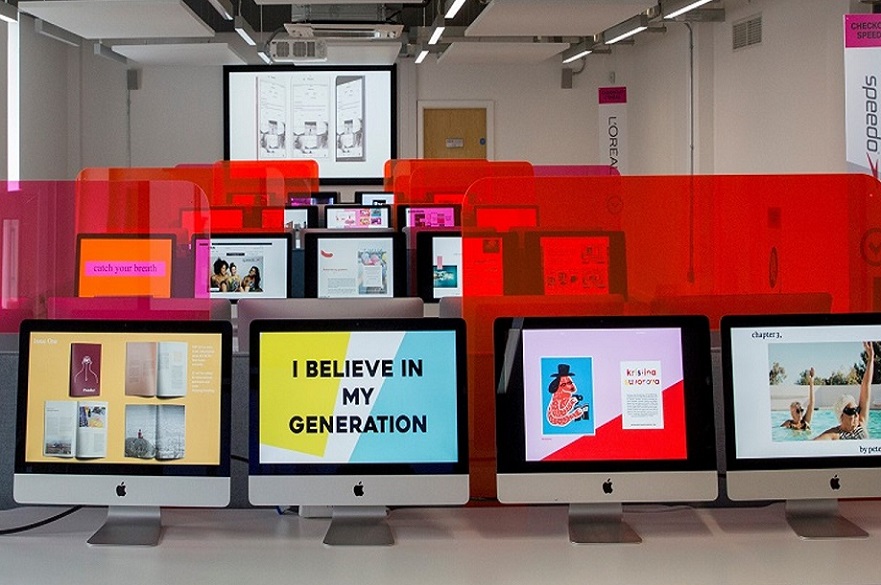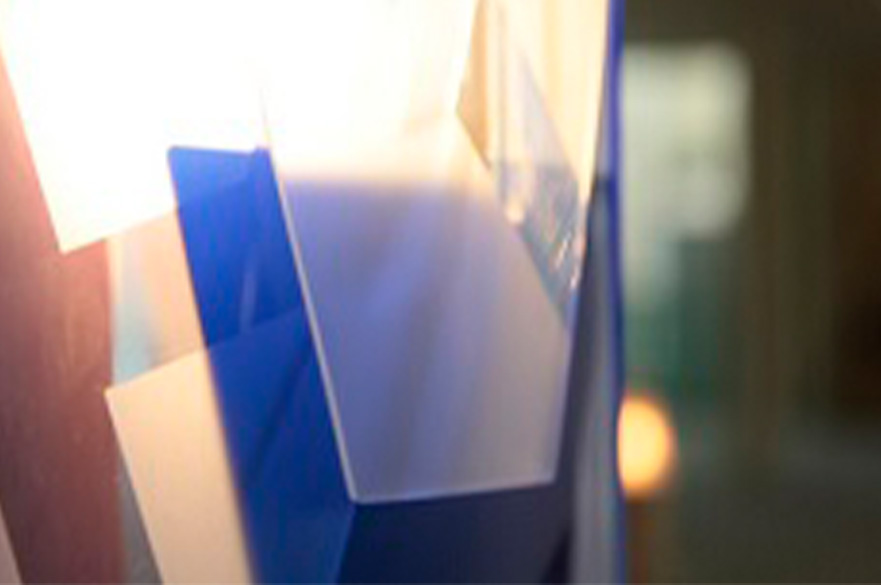Psychology for designers
- Level(s) of Study: Short course; Professional
- Course Fee:
£545
- Start Date(s): 3 October 2025, 23 January 2026, 17 April 2026
- Duration: Fridays 9.30 am - 4.30 pm, two weeks
- Study Mode(s): Part-time
- Campus: City Campus
- Entry Requirements: More information
Introduction:
Course dates:
3 - 10 October 2025, Fridays 9.30 - 4.30 pm
23 - 30 January 2026, Fridays 9.30 - 4.30 pm
17 - 24 April 2026, Fridays 9.30 am - 4.30 pm
This course is for anyone working in a design, creative or research agency, as well as sole-trading creative entrepreneurs, who’s keen to explore the psychological processes that underpin behaviour in the context of design.
From perception and consumer behaviour to bias and inclusion, the course will help you increase your effectiveness in good design to create solutions that exceed your clients’ expectations.
-
You’ll be part of a design community in a lively, energised classroom environment (rather than online solo working); one that promotes discussion, collaboration and the constant swapping of ideas.
-
In addition to the classroom time, you'll have a one-hour one-to-one session with a tutor after the course to help develop your ideas further.
-
Benefit from learning with experienced tutors who have significant experience working in varied creative professions.
-
On successful completion of the course, you will receive a digital certificate of attendance and a digital badge.
Here's what previous attendees said:
‘Really interesting and informative! Working within the retail sector, I wanted to gain further insights into consumer behaviours and trends. From doing this course I have learnt what helps to promote decision making based on insights and consumer psychology, brand identity and aesthetic choices. It was a good mix of learning and interactive activities, and I found the 'bias' section particularly interesting. The discussion on adverts and logo recognition really interested me too, due to my background. Thank you Yvonne.' AD, Estee Lauder
‘I enjoyed all of the course and feel lucky being able to attend. I have taken a lot away with me, it has given me lots to think about. I signed up for the course to learn more about design choices, and now have a deeper understanding of consumer psychology, and how to effectively use design and branding to maximise my sales. I enjoyed learning about the three second rule and other psychological aspects, looking through lots of examples and seeing the concepts in action.' AN
‘Excellent friendly tutor, great handbook. I wanted to develop a greater awareness of how to position my business and stand out from the crowd, now I have a lot of questions and thoughts for changes I can make.' IS
‘Brilliant course, very informative and skills learnt I can put into practice to develop in my own business. It was a well-balanced course between theory and practice. Great course and friendly atmosphere.' MM
'I found the course really interesting and informative. Everything was underpinned with psychological theories, exploring human behaviour, need and choices. It gave us all lots to consider when thinking of our own current/future customers. I enjoyed the scenarios and discussions as a group. The workbook was excellent - full of useful information to refer back to, all of which I will use/apply when developing ideas/products for my own customers, hopefully in the near future.' AM
'From doing this course I now have a deeper understanding of human behaviour and interactions with design. I found it really interesting to learn about the psychology behind choice and also reasons behind design efficacy. I’ve learnt how to make my designs more effective.'
What you’ll study
The consumer landscape is constantly evolving, and the way consumers interact with brands has transformed.
88% of high-ranking executives say that customers and employees are changing faster than they can change their business (Accenture Song 2022).
This emphasises the need for designers to be quick to respond to consumer behaviour in order to survive.
One of the ways of doing this is by understanding the psychology of design.
This course will help you to understand how the brain works, consumer psychology and what really drives your customer.
It will help you become an effective designer who gets things noticed, gets consumers to engage and gets them to react.
By the end of the course, you will understand how psychology can be applied in the context of design and consumer motivations.
You will have the skills to create designs that sell and win hearts and minds.
On this course, you’ll complete the following modules:
You’ll learn about how your brain works, how you can make the best use of it, and how human needs can be met with good design.
You will explore human behaviour and decode unconscious decision making, i.e. Why we do what we do? And how we can ethically influence minds and shape behaviour?
You will explore current challenges designers face when attempting to create engaging experiences, and how we can use neuroscience and behavioural science to help people make better decisions.
How you’re taught
The course will be a combination of lectures, discussions and informal learning spaces that allow for exploration, discussion, critique and shared learning.
Slides, templates and workbooks will be available to download after the course for future reference.
Contact hours
You will receive 12 contact hours of quality tuition with an experienced tutor.
Careers and employability
Certificate of attendance and digital badge
Upon successful completion of the course, you will receive a digital certificate of attendance and a digital badge powered by Accredible.
Your digital credential is more than just a certificate – it’s secure, verifiable, and protected against fraud through encryption and blockchain technology.
They also come with detailed metadata, including an overview of the skills you have achieved on the course, evidence of completion, and assessment criteria if appropriate.
Share your achievements seamlessly with friends, customers, and potential employers online, and proudly add your badge or certificate to social media platforms such as LinkedIn, so all the right people can see it.
Campus and facilities
You will be based on the NTU City Campus.
You will receive an email one week before the course starts with joining instructions on where to go for the first day.
You’ll also have access to our library to use outside of your short course; whilst you can’t reserve or take away books, you are welcome to use them as a resource for research and referencing.
Entry requirements
Level: Intermediate / Professional
Entry requirement: You should have experience of working in a creative environment, but no formal qualifications in design are required.
Fees and funding
The fee for this course is £545.
Payment is due at the time of booking - ask us if you'd prefer an invoice sent to your company.
Your course fees cover the cost of studies and include great benefits such as the use of our modern library and free use of the IT equipment and software on the campus during your course.
You can read the terms and conditions of booking here.
How to apply
You can book your place via the NTU online store:
3 - 10 October 2025, Fridays 9.30 - 4.30 pm
23 - 30 January 2026, Fridays 9.30 - 4.30 pm
17 - 24 April 2026, Fridays 9.30 am - 4.30 pm
Browse all our design and digital arts courses.
Any questions?
Contact the short course team:
Email: creativeshortcourses@ntu.ac.uk
Tel: +44 (0)115 848 2813


